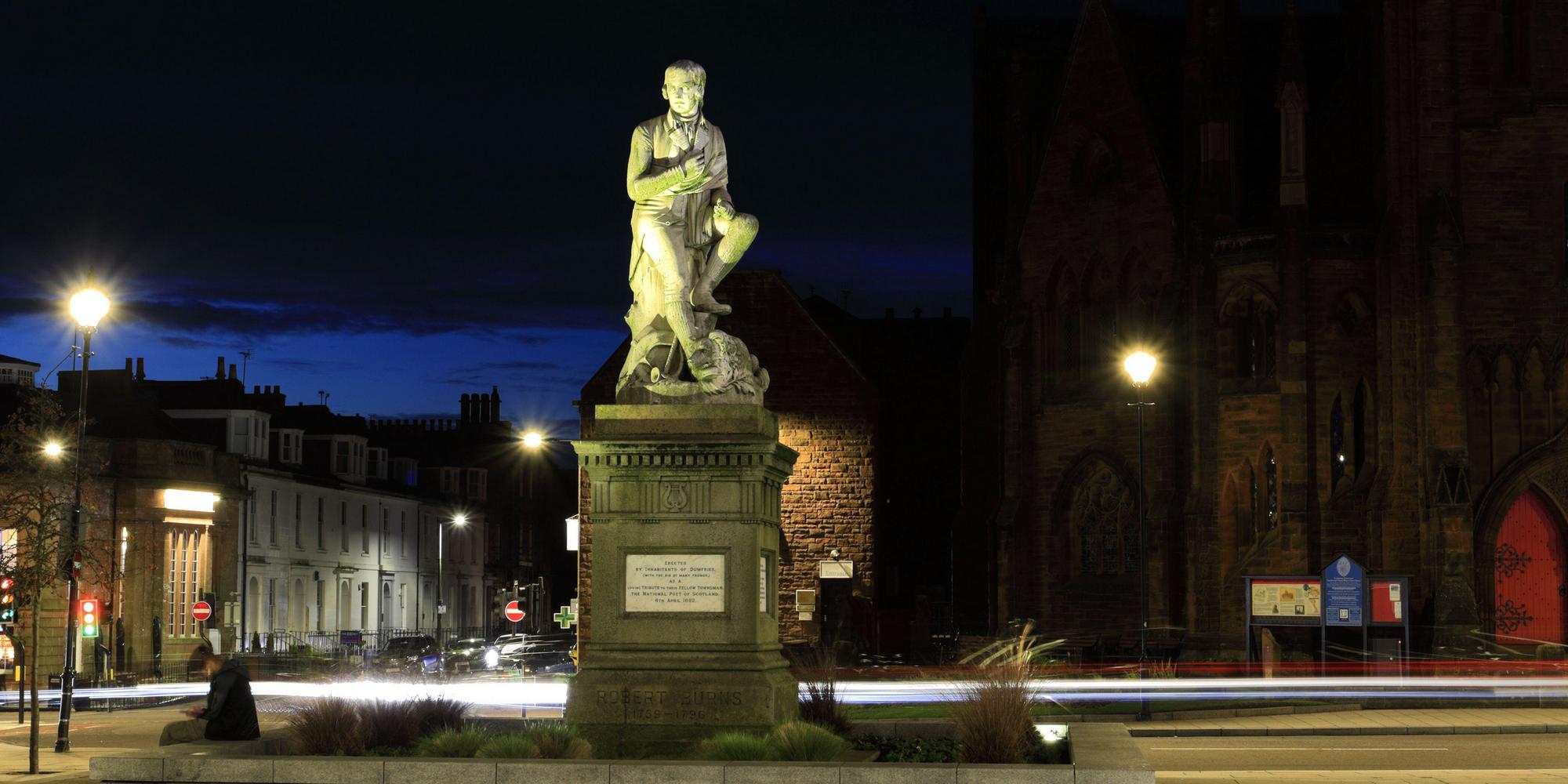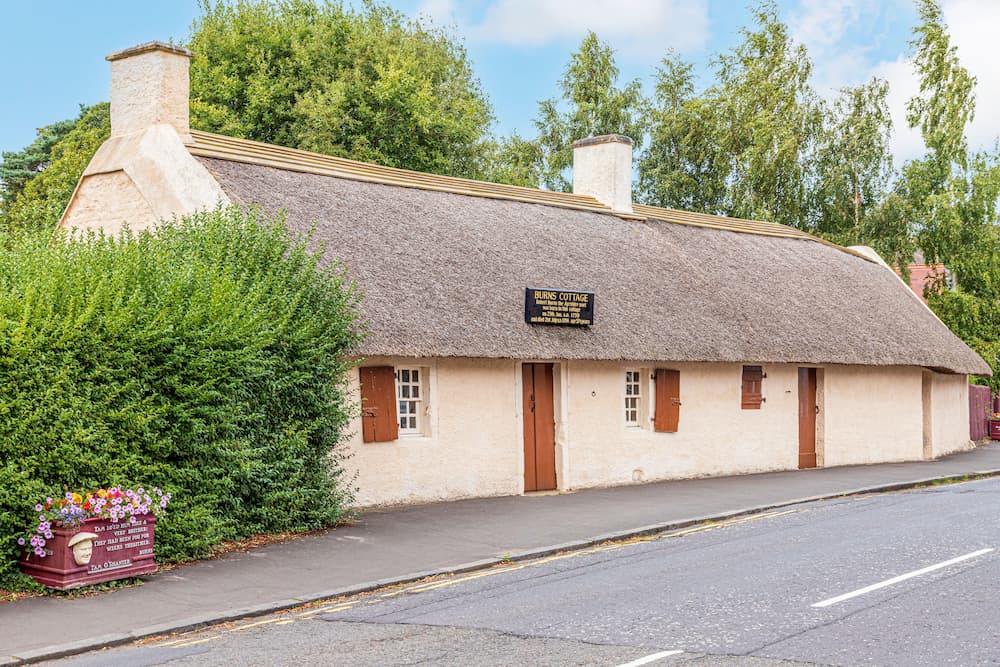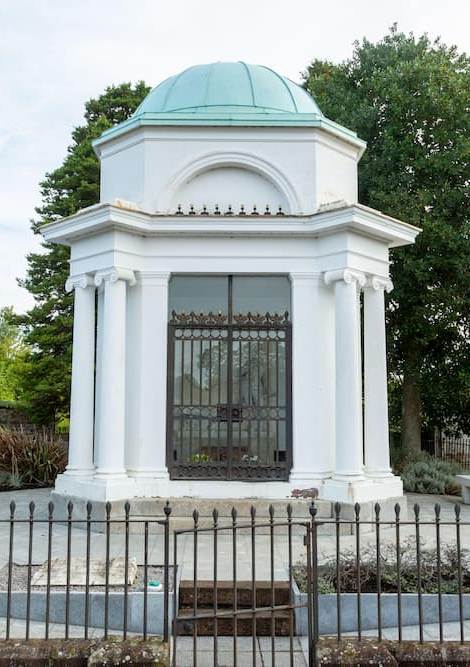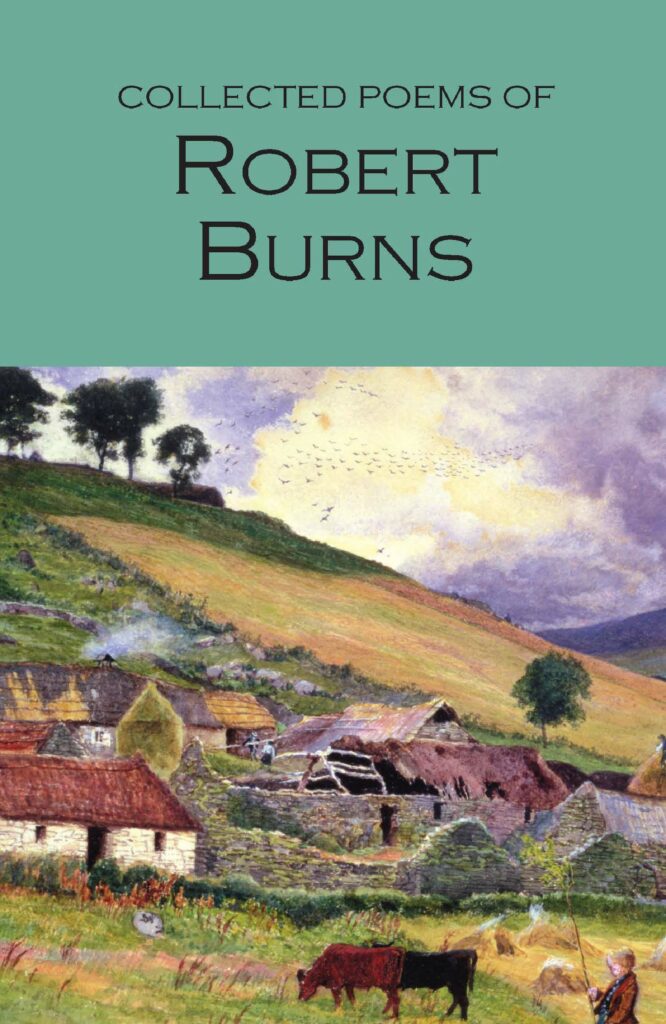
A Blog for Burns Night
Mia Rocquemore has a timely look the poetry of Robert Burns. in a A Blog for Burns Night
Guests at a traditional Burns Night supper are greeted by the blare of the bagpipe, its fierce notes unmistakable and unignorable. It would be hard to conceive of a more suitable opening for a celebration of Scotland’s most important poet, for in the work of Robert Burns the reader is immediately struck by sound. Burns’ poetry makes a direct appeal to the ear. Through his mastery of rhythm and rhyme, he manipulates pace and tone in a way that can transport his audience from the dizzying frenzy of a supernatural revel to the somber recollections of a veteran soldier:
“As Tammie glowr’d, amaz’d, and curious,
The mirth and fun grew fast and furious:
The piper loud and louder blew;
The dancers quick and quicker flew”
– Tam o’Shanter
“And the Moro low was laid at the sound of the drum.
…
I’d clatter on my stumps at the sound of a drum.
…
As when I used in scarlet to follow a drum.
…
I could meet a troop of hell at the sound of the drum.”
– The Jolly Beggars A Blog for Burns Night

The Robert Burns Birthplace Museum
Burns celebrates “wit’ merry sangs”, tell stories “wi’ rhymes well-turn’d an’ ready”, and sees throughout “the deep green-mantled Earth…joy and music pouring forth In ev’ry grove”. He mourns, however, in silence. Silence and reticence are the markers of death and despair; grief supresses song, and the absence of sound leaves a vacuum in which sorrow rings all the louder.
“His grief-worn heart, with truest joy,
Shall meet the welcome shock;
His airy harp shall lie unstrung
And silent on the rock.”
– Elegy
“No idly-feign’d poetic pains,
My sad love-lorn lamentings claim;
No shepherd’s pipe – Arcadian strains;
No fabled tortures, quaint and tame”
– The Lament
Music is both for and from the heart. Burns speaks in an almost Platonic way of the harmonising and transcendent power of song, describing how worshippers “chant their artless notes in simple guise; They tune their hearts, by far the noblest aim”. It grows within, from the “rudely-caroll’d, chiming phrase, In uncouth rhymes” of the inexperienced young poet, to the passionate outpouring of the rhapsode:
“And when the bard, or hoary sage,
Charm or instruct the future age,
They bind the wild poetic rage
In energy”
– The Vision A Blog for Burns Night
The task of the poet is to tame the organic, vitalising force of sound, and transform it into a song that “at once ’tis music – and ’tis love”. According to The Joly Beggars, this can be done by a simple fiddler: “I am a fiddler to my trade, And a’ the tunes that e’er I play’d, The sweetest still to wife or maid, Was whistle owre the lave o’t”. Elsewhere Burns seems to confirm that any humble being with a musical soul may transmute nature’s sounds into song, “the simple Bard, rough at the rustic plough, Learning his tuneful trade from every bough”. Nonetheless, he undoubtedly believes in an artistic hierarchy, that some poets are better than others.
“In Homer’s craft Jock Milton thrives;
Eschylus’ pen Will Shakespeare drives;
Wee Pope, the knurlin’, till him rives
Horatian fame;
In thy sweet sang, Barbauld, survives
Even Sappho’s flame.
But thee, Theocritus, wha matches?
They’re no herds’ ballats, Maro’s catches;
Squire Pope but busks his skinklin’ patches
O’ heathen tatters:
I pass by hunders, nameless wretches,
That ape their betters.”
– On Pastoral Poetry
So what is it that determines poetic quality? With classical imagery – the Muses, their mountain home on Parnassus, the harp or lyre, Pegasus and Mount Helicon – Burns presents the idea of sacred, lasting verse that immortalises both creator and subject. The poet who can tame the winged horse and soar on him to Parnassus’ heights is entrusted to preserve human achievement and memory for posterity, to sing of it “to endless generations”.
A bard was selected to witness the fray,
And tell future ages the feats of the day;
– The Whistle
A rustic bard
‘To give my counsels all in one,
Thy tuneful flame still careful fan;
Preserve the dignity of Man,
With Soul erect;
And trust the Universal Plan
Will all protect.
– The Vision
This humble tribute with a tear he gives,
A brother Bard, who can no more bestow:
But dear to fame thy Song immortal lives,
A nobler monument than Art can show.
– Inscription on the Tombstone A Blog for Burns Night

Robert Burns Mausoleum in St Michael’s Church yard, Dumfries
The bard is aware that greater heights are to be reached, and that the world will speak the words and name of those that attain them: “And as he touch’d his trembling harp, And as he tun’d his doleful sang, The winds, lamenting thro’ their caves, To echo bore the notes alang”. This concept of immortalising verse is a hallmark of classical poetry, showing its influence Burns’ work and outlook. The legacy of the creator living on in his creation, particularly the poetic, is an overarching theme in ancient poetry. There awaits, for he who “glows with all the spirit of the Bard, Fame, honest fame, his great, his dear reward”. Such glory belongs to the poet whose song is considered worthy of singing, whose themes and style are not bound by time and place, but whose message resonates with all people in all places.
Naturally, themes of love, death, victory and human nature extend across this vista. By contrast, poetry written on contextual themes does not, according to Burns, deserve this glory, as he acknowledges in his own epistolary verses. These short poems, written to friends and acquaintances, are often described in self-deprecating terms, as “puir silly, rhymin’ clatter” and “idle rhyme”, one even signed off “yours, Rab the Ranter”. They are merely “to pass the time”, an amusing activity for “when ye hae an hour to spare”, but one in which the “Muse dow scarcely spread her wing!”
With this precedent of great verse on lofty themes and recreational poetry on mundane matters established, Burns sometimes exploits it for comedic effect. Poor “Poet Willie” in The Kirk’s Alarm is emblematic of one who fails to live up to the legacy of the poetic masters: “O’er Pegasus’ side ye ne’er laid a stride, Ye but smelt, man, the place where he shit”!
In one epistle, the pompous poet proudly declaims that he is scaling new artistic heights, but turns out simply to be drunk: “I’m on Parnassus’ brink, Rivin’ the words to gar them clink; Whyles dazed wi’ love, whyles dazed wi’ drink”. The theme of alcohol-induced poetic pretension continues in Scotch Drink, on one of Burns’ most cherished topics.
“Let other Poets raise a fracas A Blog for Burns Night
‘Bout vines, an’ wines, an’ drunken Bacchus,
An’ crabbèd names an’ stories wrack us,
An’ grate our lug;
I sing the juice Scotch bear can mak us,
In glass or jug.
O thou, my Muse! guid auld Scotch Drink,
Whether thro’ wimplin worms thou jink,
Or, richly brown, ream owre the brink,
In glorious faem,
Inspire me, till I lisp an’ wink,
To sing thy name!”
– Scotch Drink
Talk of “glorious faem” and “my Muse” puts Burns’ beloved whisky on the highest pedestal of poetry alongside love and loss, while his light-hearted disdain for the “fracas” raised over wine demotes the drink beneath the scope of even the humblest verse. Likewise victims of Burns’ scorn are paid poets and their commissioned rhymes. The “mercenary bard” or “venal gang” of poets-for-hire cannot produce the great works of the true bard, whose “dearest meed a friend’s esteem and praise”, but rather “may jingle and rhyme In hopes of a laureate wreathing, And when he has wasted his time He’s kindly rewarded with naething”. Such minstrels degrade and demean poetry by writing whatever their patron demands, “stringin’ blethers up in rhyme, For fools to sing”, and in Burns’ opinion, “that’s nae flatt’rin’”.
Commissioned poetry, which comes not from the heart but from the offer of financial reward, lacks sublimity, and cannot compete with the authentic passion displayed by the true poet. In Willie Chalmers, written for the eponymous acquaintance in a response to his request for an epistolary poem to his beloved, Burns discusses the struggle that he himself faced when trying to write great poetry on behalf of another:
“My Pegasus I’m got astride,
And up Parnassus pechin’;
Whiles owre a bush wi’ downward crush,
The doited beastie stammers;
Then up he gets, and off he sets
For sake o’ Willie Chalmers.”
– Willie Chalmers A Blog for Burns Night
In fact Burns quite frequently laments that his own poetic powers are no match for the mighty subjects he longs to speak of. Whether the beauty of his beloved – “My Muse, to dream of such a theme, Thy feeble powers surrender!… I’ll drap the lyre, and mute admire The charms o’ lovely Davies” – or the otherworldly dance of a witch – “my muse her wing maun cour; Sic flights are far beyond her pow’r To sing how Nannie lap and flang” – he claims his skill cannot meet the demands of such elevated themes. The irony, of course, lies in the medium of this claim. Despite what he may assert, Burns’ songs, ballads, epistles and elegies make it clear that “our bard like a prophet” has scaled Parnassus’ heights and immortalised through verse many of his most revered subjects – women, whisky and Caledonia – for both his own and Scottish glory.
Main image: The poet Robert Burns statue in Dumfries town centre, Greyfriars Church behind at night. Credit: Dave Porter / Alamy Stock Photo
Image 1 above: The Robert Burns Birthplace Museum, Burns Cottage. Credit: Stephen Dorey / Alamy Stock Photo
Image 2 above: Robert Burns Mausoleum in St Michael’s Churchyard, Dumfries. Creditor: Richard Newton / Alamy Stock Photo
For more information on Robert Burns, see Robert Burns Country: The official Robert Burns site
Our edition is here
Books associated with this article
